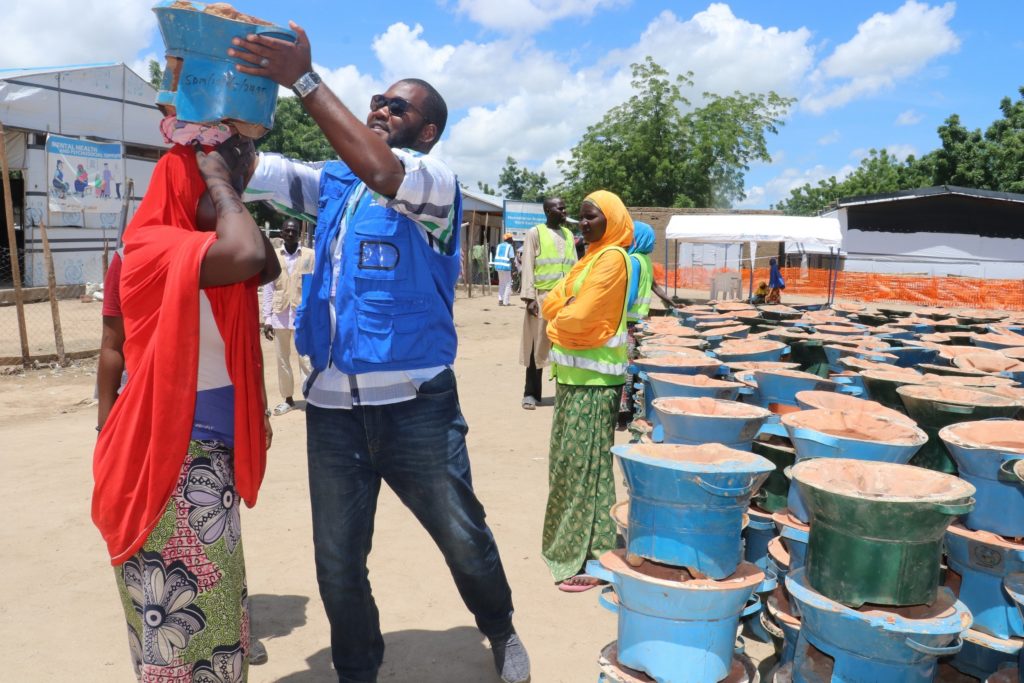By Samuel Oyejola
In an effort to improve quality of life and reduce the protection risks faced by women and girls who have to gather firewood from unsafe areas in Borno state, the World Food Programme (WFP) has distributed fuel-efficient stoves to over 7000 displaced families benefiting from WFP food assistance in Banki, Borno state.
The distribution became necessary following findings revealed that 85% of women felt at risk when collecting firewood from various threats including violence, sexual assaults and even abduction.
The assessment further reveled that 76% of those surveyed were not able to cover their daily cooking needs due to inadequate supplies of firewood while 70% have no access to wood fuel resources in their immediate living environment as a result of the insecurity rising from the ongoing conflict between the security forces and Non-state Armed Actors which has limited peoples movements.
The World Food Programme in Nigeria has been providing monthly food rations to some 45000 people who are entirely dependent on humanitarian assistance since 2016 in Banki.
Time Nigeria gathered that the stoves were distributed under WFP’s Safe Access to Fuel and Energy (SAFE) Initiative and are intended to bring multiple benefits to almost every family living in the camp.
WFP said it also plans to roll out the stoves distribution programme across four additional local government areas in Borno.
The humanitarian agency revealed that it is finalising plans to begin the second phase of a longer term project aimed at increasing income-generating opportunities and boosting the livelihoods of people in the camps.
The plan to boost livelihoods of people in the camps WFP said it would involve training women and girls in how to manufacture and market the fuel-efficient cooking stoves locally.
SAFE Initiative becomes necessary as a result of families being forced into poor dietary habits because they cannot afford fuel which means they risk eating undercooked food, rely on less nutritious foods that do not require cooking or eat fewer meals.
WFP said that the stoves also have additional health and environmental benefits. They help to prevent further deforestation and produce far less smoke than traditional fires, reducing the incidence of respiratory diseases. Furthermore, the design of the stoves reduces the safety risks, such as fires, when used inside houses.
“When we distribute food to a vulnerable population, our aim is to make sure that people are able to prepare that food safely without putting themselves in harm’s way”, explains Sarah Longford, Country Director a.i. in Nigeria.
“We’re stepping in to protect women and young girls whose lives are exposed to great danger while crossing unsafe territories to fetch firewood. These stoves burn 50% less fuel when compared to conventional open cooking fires. This reduces the burden of care on women and girls who can spend less time spent on gathering firewood, she said”.

